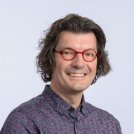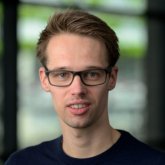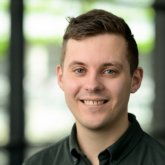In mental healthcare, timely access to treatment is under pressure. A key explaining factor is the lack of alignment between required treatment and available resources causing many patients to be put on waiting lists. A second explaining factor is the imbalance between standardization and personalization of treatment pathways. A third factor is imprecise decision-making during the diagnostic phase. Treatment capacity used without meeting the treatment needs is a further loss of scarce resources. An approach that enables timely access to treatment by aligning treatment needs and capacity is needed.
Integral Capacity Management (ICM) has proven effective in improving treatment accessibility as well as reducing work pressure in hospital care. ICM within mental healthcare faces unique challenges due to, e.g., the multidisciplinary nature of treatments and the variable definitions of treatment success/completion. This project aims to extend results for hospital care to mental healthcare to develop an integrated ICM approach to improve timely access to treatment and increase resource utilization across mental healthcare chains.
You will develop operations research models and data-driven decision rules for improving treatment accessibility as well as reducing work pressure in mental healthcare. Such models may, for example, be composed of statistical techniques to forecast the of number patients, stochastic models to determine the waiting times of patients, and optimisation models such as reinforcement learning models to allocate patients to treatment.
You will implement your decision rules in prototype decision support systems to facilitate their further development towards real-life use in mental healthcare organisations.
Your project will be embedded in the inter-faculty research team CHOIR (Centre for Healthcare Operations Improvement and Research). CHOIR is a research center within the UT that focuses on Operations Research methods for Healthcare Logistics, such as multi-appointment scheduling, surgery scheduling, and resource allocation in times of scarce healthcare capacity. CHOIR is one of the most active and productive research groups in the field of Operations Research and Management in Healthcare.
Information and application
Are you interested in this position? Please send your application via the 'Apply now' button below before February 1, 2025, and include:
* A cover letter (maximum 2 pages A4) emphasizing your specific interest, qualifications, and motivations to apply for this position.
* A Curriculum Vitae, including a list of all courses attended and grades obtained, and, if applicable, a list of publications and references.
* A copy of your Master's thesis or, if it is not yet available, an outline and summary of your thesis.
* An IELTS-test, Internet TOEFL test (TOEFL-iBT), or a Cambridge CAE-C (CPE). Applicants with a non-Dutch qualification and who have not had secondary and tertiary education in English can only be admitted with an IELTS-test showing a total band score of at least 6.5, internet. TOEFL test (TOEFL-iBT) showing a score of at least 90, or a Cambridge CAE-C (CPE).
For more information regarding this position, you are welcome to contact Richard Boucherie via r.j.boucherie@utwente.nl.
About the department
Our research group, Stochastic Operations Research (SOR), conducts mathematical education and research of internationally high standards in the areas of stochastic processes and mathematics of operations research to contribute to the development of mathematics in a multidisciplinary engineering environment and contribute to a better understanding and functioning of our increasingly complex society. Find out more about SOR here.
The position will be in the Applied Mathematics department. The Applied Mathematics department has an active research portfolio in stochastic operations research, algorithmic discrete mathematics, complex networks, statistics, systems theory, computational science, and artificial intelligence with applications in health care, energy systems, traffic, and imaging. Find out more via the following links: MOR, SACS and MDS.
About the organisation
The faculty of Electrical Engineering, Mathematics and Computer Science (EEMCS) uses mathematics, electronics and computer technology to contribute to the development of Information and Communication Technology (ICT). With ICT present in almost every device and product we use nowadays, we embrace our role as contributors to a broad range of societal activities and as pioneers of tomorrow's digital society. As part of a people-first tech university that aims to shape society, individuals and connections, our faculty works together intensively with industrial partners and researchers in the Netherlands and abroad, and conducts extensive research for external commissioning parties and funders. Our research has a high profile both in the Netherlands and internationally. It has been accommodated in three multidisciplinary UT research institutes: Mesa+ Institute, TechMed Centre and Digital Society Institute.




